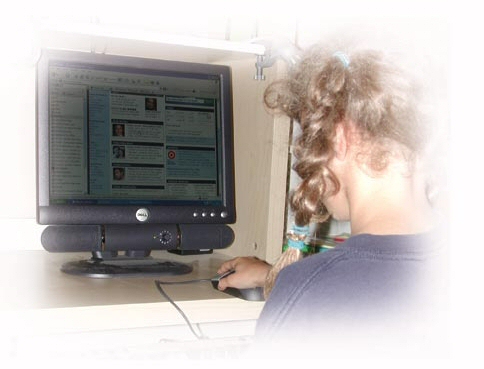Courses/Computer Science/CPSC 203/CPSC 203 2007Summer L60/CPSC 203 2007Summer L60 TermProjects/Catch a Predator
Contents
- 1 Team Members
- 2 Initial Project Statement
- 3 How is this problem significant and dangerous?
- 4 Why do children trust internet sexual predators?
- 5 Statistics of Online Child Predation
- 6 The Steps Yahoo! is taking to stop child predation in Yahoo! Chat rooms
- 6.1 Yahoo will prescreen user-created chatrooms
- 6.2 Yahoo will make it easier to report and follow up on inappropriate behaviour on Yahoo! Chat
- 6.3 IP Logging
- 6.4 Education
- 6.5 Monetary Donation to a National Charity for Missing Children
- 6.6 Webspace Donation to The National Centre for Missing and Exploited Children
- 6.7 Increased Assistance with Law Enforcement
- 7 The Steps you can take for the Safety of Your Family
- 8 Child Predation in Yahoo! Chatrooms in the Future
- 9 External Links
Team Members
Members of Team Oreo
Farah Dosani
Jaspreet Warring
Raelyn Gerun
Initial Project Statement
In this project, we will take an in depth look at child predators in internet chat rooms. As this chat room phenomenon is growing so rapidly in today’s generation, we hope to explore a few key factors as to how and why this social issue has become such a significant and dangerous one. Secondly, we will attempt to answer the question of what is being done to extingush this problem, and what can we expect in the future of online chat rooms.
How is this problem significant and dangerous?
Child predation in chatrooms has become and increasingly significant problem or the last few years. With computer technology reaching higher limits than ever before, child predation has reached those same limits and is increasing on a daily basis. Through the use of online chatrooms, pedophiles are able to access younger children more quickly and easily. The chatroom was originally designed as a commonplace for people to meet who share similar activities and interests. However, this seemingly harmless means of interaction has become one that has brought into question the safety and protection of young children of our generation.
Pornographic photographs, molestation, sexual exploitation are only a few of the exchanges that are happening with children on a daily by these sexual predators. It is estimated that 500, 000 to 750, 000 child predators are on the internet daily (Zandt, 2005), and this number is growing. More and more children are being lured in to private chat lines and are solicited sex by these pedophiles posing as young people.
Why do children trust internet sexual predators?
All children and teenagers are looking for someone who "understands" them. Most of teenagers often feel that they are misunderstood. When an older man or woman (usually a man and pedophile) shows a keen interest in them, they often feel that they have met their soul mate. Sexual predators are extremely convincing indiviuals, and they usually do not have to kidnap children in order to lure them away. A sexual predator can look like an average man and usually they are not indentifiable by sight, and they can be very attractive and trustworthy. Children and teenagers can easily fall victim to one and be caught in a situation they can not control before they know what's happened.
Statistics of Online Child Predation
1. One in five children who use computer chat rooms has been approached over the Internet by pedophiles.
2. 69 percent of teens regularly receive personal messages online from people they don't know and most of them don't tell a trusted adult about it.
3. 50 percent of high school students "talk" in chat rooms or use instant messaging (IM) with Internet strangers.
4. 20 percent of students in middle school as well as high school admit that they have met face-to-face with someone they first met on the Internet.
5. 4 percent of all youth Internet users in 2005 said online solicitors asked them for nude or sexually explicit photographs of themselves.
6. In a survey conducted by the Intelligence Group, Dateline questioned 500 teenagers across the country, ages 14-18, about their computer habit. When asked if someone they've met online has wanted to meet them in person, 58 percent said "yes" and 29 percent said they've had a "scary" experience online.
7. Half of teens ages 13-18 often communicate through the Internet with someone they have not met in person.
8. One-third of youth ages 8-18 have talked about meeting someone they have only met through the Internet.
9. Almost one in eight youth ages 8-18 discovered that someone they were communicating with online was an adult pretending to be much younger.
10. 30 percent of teenage girls polled by the Girl Scout Research Institute said they had been sexually harassed in a chat room. Only 7 percent, however, told their mothers or fathers about the harassment because they were worried that their parents would ban them from going online"
11. 86 percent of the girls polled said they could chat online without their parents' knowledge, 57 percent could read their parents' e-mail, and 54 percent could conduct a cyber relationship.
12. According to Interpol, the international police organization, as many as one in 1,000 men has a sexual interest in children.
The Steps Yahoo! is taking to stop child predation in Yahoo! Chat rooms
Yahoo will prescreen user-created chatrooms
Yahoo! is taking various measures to protect children. They have decided to start banning the creation of new chatrooms with names that promote or encourage sex between adults and minors such as "8-12 year old girls for older men", and "teen girls for older fat men". If Yahoo! receives word of this chatrooms, they must be shut down within 24 hours.
Yahoo will make it easier to report and follow up on inappropriate behaviour on Yahoo! Chat
Yahoo will implement policies and procedures such as the "Report Abuse" Link and priority for complaints related to child safety.
IP Logging
Yahoo will give clear notice to a user when they are entering a chatroom, that their IP is being recorded. This is to signal to users that they maybe traceable offline.
Education
Yahoo! has agreed to do more to educate children about online safety. They have agreed to increase the amount of materials that promote child safety. This will be called the "Chat Safety Module" and Yahoo must provide various links throughout the site to this module.
Monetary Donation to a National Charity for Missing Children
In 2005, Yahoo! made a donation to The National Centre for Missing and Exploited Children for $175,000.
Webspace Donation to The National Centre for Missing and Exploited Children
Yahoo donated webspace in order to reach 2 million teenagers aged 13-18 to educate them through the Yahoo Music Area.
Increased Assistance with Law Enforcement
Yahoo will prepare a manual on how they can assist Law enforcement agencies and investigations on internet predator cases.
The Steps you can take for the Safety of Your Family
Purchase Monitoring Software and Filters
Filters block sites that a parent does not wish for their child to access. There is software available that will take snapshots of a screen on a continuous basis and then e-mail that information back to the parents.
No online profiles
Pictures and readily available personal information is dangerous. These profiles are what predators use to find their next victim.
Location
Make sure the computer is in a busy location, do not allow children to have a computer in their bedroom.
Contact the Local Authorities
Call the local authorities if your child is being stalked/harassed by an online predator. Parents can also contact the CyberTipline, a reporting mechanism for cases of child sexual exploitation including child pornography, online enticement of children for sex acts, molestation of children outside the family, sex tourism of children, child victims of prostitution, and unsolicited obscene material sent to a child. Reports may be made 24-hours per day, 7 days per week online at www.cybertipline.com or by calling 1-800-843-5678.
Child Predation in Yahoo! Chatrooms in the Future
EDUCATION, EDUCATION, EDUCATION!
(Hey, Not just the kids, but the parents as well) This is the key to stopping child predation. It is the personal responsibility for parents to do their best to protect their children from online child predators through teaching their children. It is important that parents raise their awareness about cyberspace.
External Links
Websites
1. http://www.buzzle.com/editorials/7-24-2006-103340.asp
2. http://www.theregister.co.uk/2005/10/13/yahoo_clamps_down/
3. http://en.wikipedia.org/wiki/To_Catch_a_Predator
4. http://telepicturesblog.warnerbros.com/tyrashow/2006/09/protect_your_child_from_intern.html
5. http://www.courttv.com/news/2007/0724/nbc_ap.html
6. http://www.msnbc.msn.com/id/11164933/
7. http://www.msnbc.msn.com/id/17601568/?page=4
8. http://www.protectkids.com/dangers/onlinepred.htm
9. http://www.webpronews.com/topnews/2005/06/24/sexual-predators-cause-yahoo-to-close-chat-rooms
10. http://www.lifesite.net/ldn/2006/jul/06072805.html
11. http://www.northcountrygazette.org/articles/101205AdultChatRooms.html
12. http://www.pcsndreams.com/Pages/Chat05.htm
13. http://www.desicaught.com/
14. http://www.mykidsafeinternet.com/protect_children_from_predators.php
15. http://wbpd.com/predator.htm
17. http://www.brightfilter.com/?gclid=CN6JtZi79o0CFQgZhgodYQs2Kw
18. http://www.safesurfincentral.com/
19. http://www.nsopr.gov/ - A Database of known offenders
20. http://enough.org/inside.php?id=2UXKJWRY8
21. http://www.netnanny.com/features/monitor-chat - An example of monitoring software
22. http://www.filterguide.com/chatblocker.htm - Software for monitoring chat sessons
22. http://www.crime-research.org/news/2003/11/Mess0602.html
23. http://www.pcplus.co.uk/news/home_news/yahoo_restricts_chat_facilities - Yahoo! restricts chat facilities
24. http://www.oag.state.ny.us/press/2005/oct/Yahoo.pdf - The actual agreement that had Yahoo! straighten up
25. http://www.enough.org/inside.php?tag=stat%20archives#6..
26. http://www.associatedcontent.com/article/104742/what_parents_should_know_about_internet.html
Google Scholar Links
Videos
28. http://www.youtube.com/watch?v=L_kADup_wZw
29. http://www.youtube.com/watch?v=hKUkwh8TmM0&mode=related&search=
30. http://www.msnbc.msn.com/id/10912603/
31. http://www.youtube.com/watch?v=hY8BkoyH8m4
Powerpoint
32. http://166.107.72.47/icpc/documents/SEMOn-Line%20Protect
All text in here will be right aligned.




